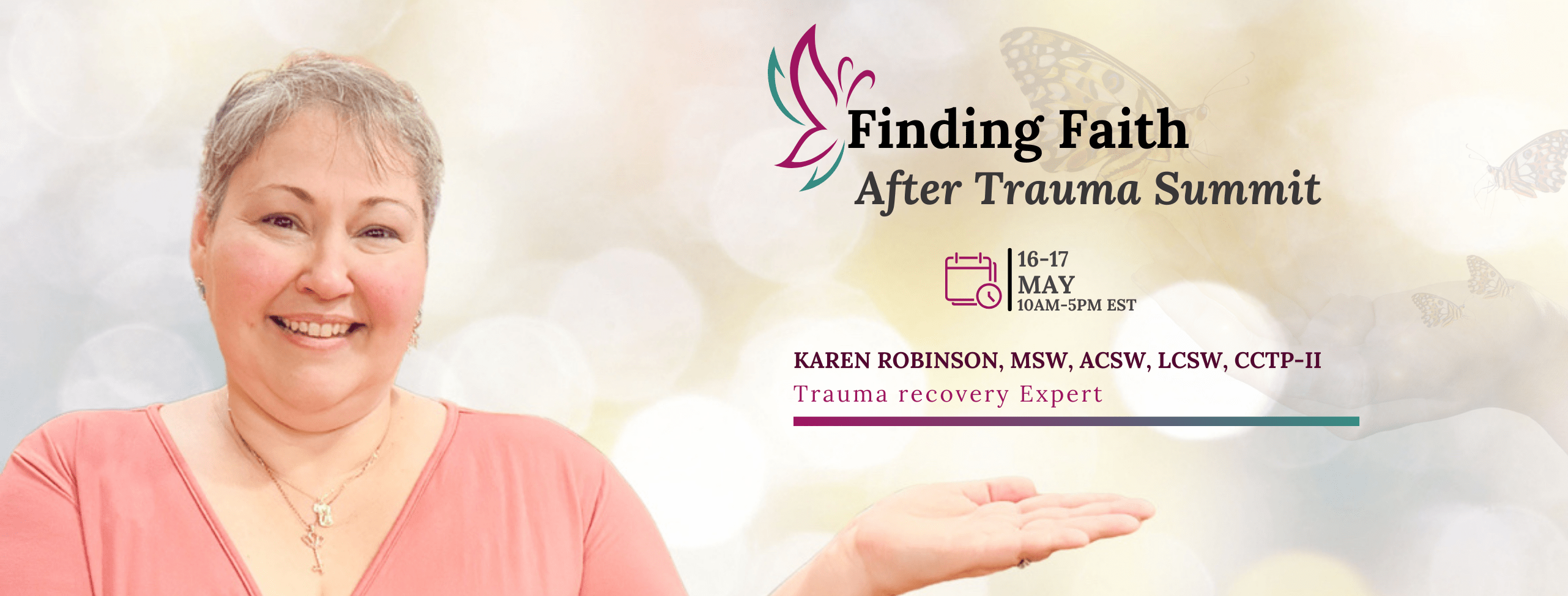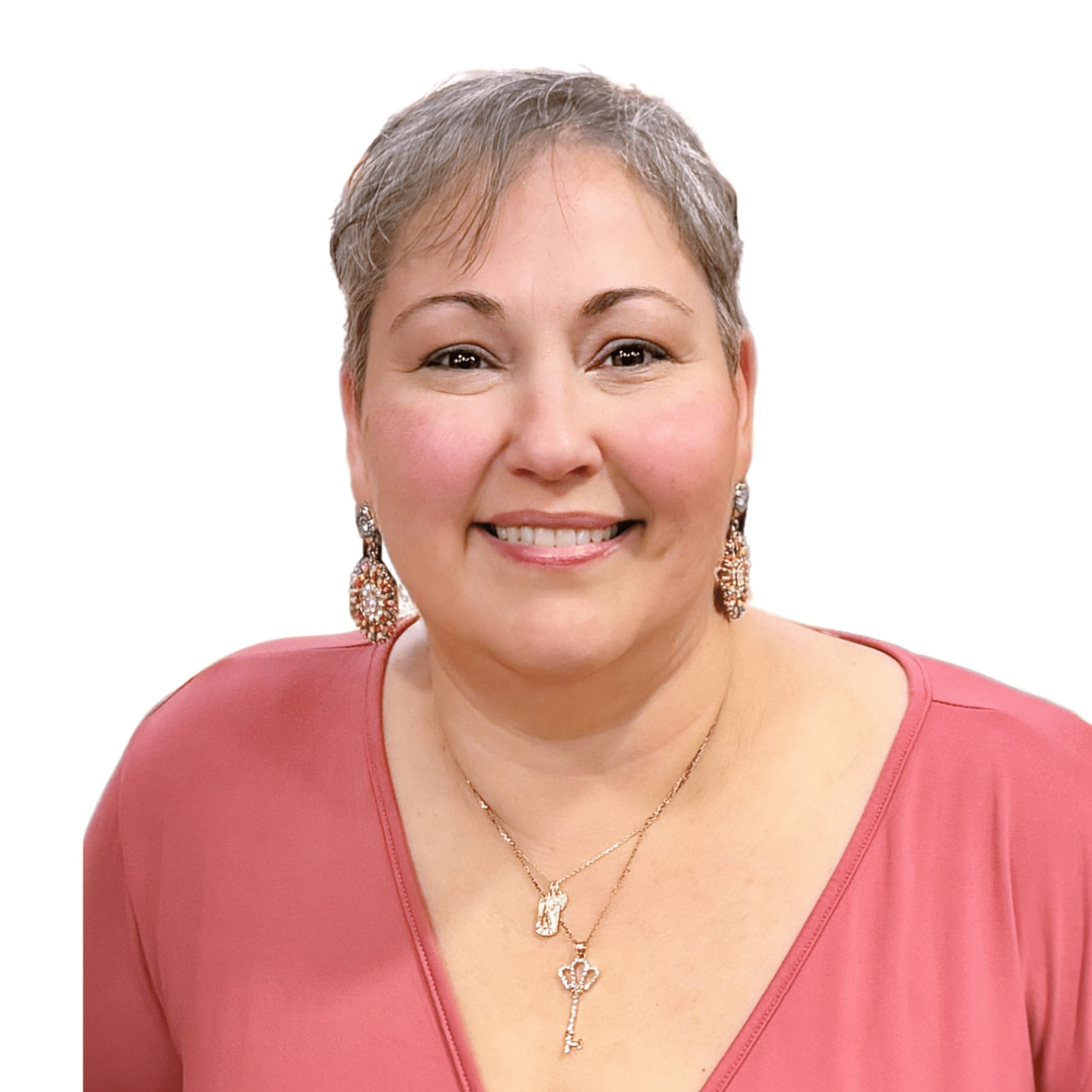Is it even possible to have faith again?
Religious trauma can rattle your faith, challenge your beliefs about you, the people around you, and the world you live in. Religious trauma can rob you of your innocence, sanity, health, and more. As a therapist specializing in trauma recovery, I often work with survivors who struggle with the dissonance between the pain inflicted by traumatic or abusive religious experiences and their spiritual beliefs. If you find yourself in a similar conflict, please reach out for help. Your pain is real and healing begins when you decide you are worthy of safe support. Reconciling the hurt done isn’t easy, but leads to a healing path, personal development, and spiritual growth and transformation.
Please attend my free event: Finding Faith After Trauma
What is Religious Trauma?
One form of religious trauma occurs when psychological harm transpires from extremist teachings from a religious environment. This can stem from oppressive doctrines, abusive spiritual leadership, or toxic community practices. The impact can leave you feeling betrayed, confused, and ashamed, and unworthy.
Other aspects of religious trauma can include being abused by clergy or members of the “faith” community. Often, victims are not believed, and the abuse more often than not, goes unreported. Trafficking and misplacement of children is not unheard of, especially in religious cults. The more I learn about religious trauma and its impact, the sadder I grow. It is truly heartbreaking how religion is used to create so much harm. Especially to innocent children. It does us no good to pretend this doesn’t happen. Burying our heads in the sand isn’t the answer and helps no one. It certainly doesn’t serve and honor God. My belief is that our Creator is pure love and is also sadden by the misery of any type of trauma or abuse in and outside of the church, synagogue, mosque, etc.
Acknowledging Your Pain
The first step in reconciling your spiritual beliefs with any abuse or religious trauma is acknowledging your pain. Try not to judge your feelings or reactions. Recognizing the harm that was done to you or a loved one, and give yourself permission to feel all the feelings of disillusionment, depression, anxiety and anger. Validating all of your complex and maybe even confusing feelings is part of the healing. The injustices you experienced are NOT okay. Your trauma doesn’t have to reflect on your faith's validity or your spiritual worth. However, it is understandable if this is hard to swallow and only you can make a choice to separate your faith from the harm done.
Separating Your Spiritual Beliefs from Religious Institutions
Often, the root of religious trauma isn't the actual spiritual teachings themselves, but rather the imperfect people or institutions interpreting and applying them. Recognizing the difference between the fundamental beliefs of your faith and the actions of a particular religious community can be eye-opening. This distinction enables you to hold onto the spiritual beliefs that bring meaning to your life while letting go of any instruction that have caused you harm. Trust your inner wisdom, the higher power within you for guidance, comfort, and direction.
Exploring Your Spirituality
The wide range of spiritual ideology and practices is vast. As you consider your beliefs, develop a personal spirituality that resonates with your true self, free from the constraints of formal doctrines if necessary. This might involve incorporating practices from different faiths, meditation, nature, art, or anything else that connects you to a sense of transcendence and purpose. Open your mind by reading about different religious and spiritual practices to see what resonates with you, what brings you peace, and provides both comfort and hope.
Seek a Healthy Spiritual Community
Healing from religious trauma is expediated within a safe, nurturing community, but it's important to choose this community carefully. Seek out groups that are inclusive, affirming, and transparent. Communities that encourage questioning and embrace diverse viewpoints can offer a supportive environment where you can rebuild trust and explore your beliefs without fear. I love that my own personal church invites people from all faith walks and understands the harm done by other churches and religious institutions.
Finding Faith After Trauma Summit
May 16-17 at 10am-5pm EST
Working with a Therapist
Working with a therapist who understands the complexities of spiritual issues can be incredibly therapeutic and healing. Therapy provides a safe space to process your experiences and explore your beliefs without pressure or judgment. As a therapist with 25 years of experience, I advocate for integrating therapeutic practices that respect and incorporate your spiritual journey as a core element of healing. It is also important that your therapist doesn’t push their beliefs on clients. This is an abuse of power and potentially damaging. It is my clinical opinion that a well trained therapist will encourage clients to explore their faith as it feels safe for the client to do so.
Re-exploring You Faith and Spirituality
As you process and heal post trauma, you may discover that your faith evolves naturally. This is because the more you work on yourself, the more awareness you develop, the more attuned you become to your inner wisdom. Thus, evolution is natural and can lead to a deeper, more personal engagement with spirituality. It is so beautiful and freeing. Allow yourself the freedom to redefine what faith means to you, free from past constraints.
Faith Rituals
Think about your morning and evening routines. Do you have any rituals in place? The difference between a ritual and a routine is that rituals hold personal significance. An example could be saying the rosary before sleep like my Grammy Lena did or saying your prayers like my Grammy Grace. Rituals help us to feel centered. This is one of the reasons I gravitate towards centering prayers! Quiet time no matter how you use it is deeply meditative, grounding and powerful. Rituals can reinforce your journey towards healing and reclaiming your spiritual agency.
Faith, Hope, and Resilience
Maintaining your faith, hope for your future, and being resilient in the here and now can be challenging when dealing with the aftermath of religious trauma. Hope is not just a feeling but a practice, faith is trusting what we can’t see, resilience is an inner strength that can be difficult to define. Faith, hope, and resilience are cultivated through your actions—small steps taken daily towards healing, moments of mindfulness, and connections with others. What are your ideas on fostering personal faith, hope, and resilience? Please share in the comments below.
My Final Thoughts
Reconciling your spiritual beliefs with religious trauma or harmed done to you or to a love one, is not an easy or a linear process. It takes introspection, unlearning old ways, and relearning—a journey that can unearth deeper insights into your beliefs and personal truths. As you walk this path, remember that you are not alone, and support is available. Embrace the journey as an opportunity to grow into a more authentic spiritual self. You are worthy! Explore community groups, spiritual practices and read widely to learn more.
As a transformational coach and trauma recovery expert, I see the strength and resilience in those who undertake this healing journey. If you're ready to start this process, remember, healing is not only possible, but it is also a profound source of liberation and peace. To learn more, please attend my summit on May 16th and 17th, “Finding Faith After Trauma.”




I remember a time in my life when I felt utterly disconnected from the spiritual practices I had grown up with. Raised in a devout household, I had always found comfort in the rituals and teachings of my faith. However, as I faced personal challenges and witnessed the suffering around me, doubts began to creep in. I felt as though I was losing an essential part of myself. It was during this period of inner turmoil that I decided to seek the help of a therapist. Through our sessions, my therapist encouraged me to explore my doubts and fears without the pressure of conforming to any particular doctrine. She guided me through mindfulness exercises and introduced me to various spiritual traditions, allowing me to see that faith is not a one-size-fits-all journey. This process of re-exploration not only rekindled my spiritual connection but also empowered me to integrate new, meaningful practices into my life. It taught me that faith is a dynamic, evolving experience, and that seeking help to navigate its complexities is a testament to our commitment to growth and self-discovery.
Armand, Thank you for leaving such thoughtful comments about your experience! I very much relate to your statements and I’m happy to hear that you continue to be connected with your faith. If you are interested in our replay package from the “Finding Faith After Trauma” Summit, please let me know. I will also be on the search for speakers next year when hosting a similar in-person event in 2025. If interested in collaborating, please email me: healthrivedream@gmail.com. Thank you!